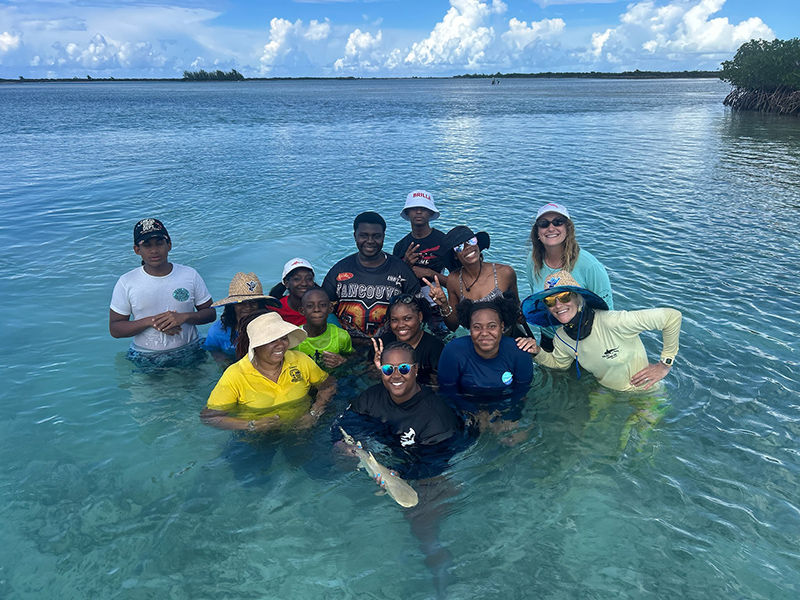My Science Hero: Eugenie “The Shark Lady” Clark, American Ichtyologist
- Sharks4Kids

- Oct 10, 2020
- 3 min read
Her academic career was not without struggle, she got rejected from Columbia Graduate School because they were worried that, as a woman, she would later quit her scientific career to raise children (because it has to be one or the other for women, right?). She didn’t give up and studied for her Masters and Doctorate at New York University instead. During her studies she carried out research on the behavior of fishes and sharks at institutes that to this day remain leaders in the field of shark science: Scripps Institution of Oceanography, Woods Hole Marine Biological Laboratory and the Lerner Marine Laboratory in Bimini (Bahamas). She went on to study these subjects for over 50 years, she’s been the recipient of countless awards and 3 honorary Doctorate degrees. And probably coolest of all the facts, she’s had several species of fish named after her, including
“I don't get philosophical. Love fish. Love sharks. Keep the water and their habitats as clean and protected as possible”
- Eugenie Clarke
In the world of Marine Biology, there are two prominent female figures in my mind: Sylvia Earle (See above), and Eugenie Clark, aka the Shark Lady. Anyone who knows me will already knows why she is so special to me, simply by reading her nickname. I am a marine biologist, a shark scientist, and a woman so it feels special to have two such successful figures to look up to and to follow in their footsteps. You may already know about her Deepness, the remarkable Sylvia Earle, let me tell you about her good friend and someone she looked up to since her childhood. Eugenie Clark was born in May 1922 (a Taurus like me!) in New York City to a Japanese mother and an American father. She became passionate about the underwater world when she was very young and wrote most of her school reports about the topic. She visited the Aquarium in NYC weekly and went on to study Zoology at Hunter College.

©Mote Marine Laboratory
Her academic career was not without struggle, she got rejected from Columbia Graduate School because they were worried that, as a woman, she would later quit her scientific career to raise children (because it has to be one or the other for women, right?). She didn’t give up and studied for her Masters and Doctorate at New York University instead. During her studies she carried out research on the behaviour of fishes and sharks at institutes that to this day remain leaders in the field of shark science: Scripps Institution of Oceanography, Woods Hole Marine Biological Laboratory and the Lerner Marine Laboratory in Bimini (Bahamas). She went on to study these subjects for over 50 years, she’s been the recipient of countless awards and 3 honorary Doctorate degrees. And probably coolest of all the facts, she’s had several species of fish named after her, including Squalus clarkae, also known as Genie’s Dogfish. She was a pioneer in scuba diving; was a freediver; wrote over 175 science papers; conducted over 70 submersible dives; led over 200 expeditions around the world; was an avid marine conservationist; and wrote 2 books*. Notably, she founded the Cape Haze Marine Institute in 1955, now known as Mote Marine Laboratory, another prominent and leading laboratory in the field of marine (and shark) research. She served as its director until 1967 and returned in 2000, after her retirement, to work there as a Senior Scientist and Trustee until her death in 2015 at the age of 92! She lived a full and successful life in spite of the struggles women will have faced in her time, fighting them by never giving up.

Dr Eugenie Clark contributed a huge amount to our current knowledge of the oceans, fishes and sharks. Knowledge that is still relevant and referenced to this day. She was an amazing woman who I will never stop looking up to. Because how could you not?
* Fun fact: she also helped create the first IMAX film.





















